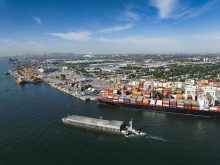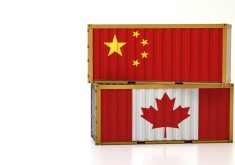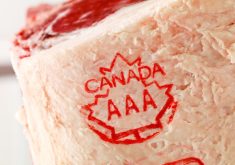Glacier FarmMedia – Canada is exploring a potential trade pact with Indonesia as it continues to seek out deals in the Asia-Pacific region.
International Trade Minister Mary Ng made the announcement Jan. 11.
Why it matters: Asian-Pacific nations make up one of the largest potential growth markets for Canadian agricultural commodities, especially given the increased volatility from existing key markets in China and India.
“Canada is committed to diversifying trade across the Asia-Pacific region to create new trade and investment opportunities for all Canadians,” Ng said in a statement.
Read Also

How stories promote farm safety
Speakers at CASA online conference explain how personal stories can be more valuable than statistics in communicating importance of farm safety
“Deepening trade ties with Indonesia would benefit Canadian businesses of all sizes and lead to economic growth and prosperity for years to come.”
A comprehensive economic partnership agreement between the two nations would benefit importers and exporters by improving market access to the world’s fourth most populous country, according to Global Affairs Canada.
Trade deals between Canada and some other nations in the region are already in place.
The Comprehensive and Progressive Agreement for Trans-Pacific Partnership is between Canada and 10 other countries: Australia, Brunei, Chile, Japan, Malaysia, Mexico, New Zealand, Peru, Singapore and Vietnam.
Indonesia’s developing economy has advanced significantly in the last decade, but is believed to still have growth potential led by a growing middle class. Among countries in Southeast Asia, Indonesia already boasts the largest economy.
It is also the largest export market in the Association of Southeast Asian Nations, a block of 10-member states, including the Philippines and Thailand (Brunei, Singapore and Vietnam are members of the CPTPP and belong to ASEAN).
Canada and Indonesia are signees on a handful of general World Trade Organization agreements, but have no bilateral trade pact. Last August, Indonesia and Canada signed a memorandum of understanding regarding trade.
According to a news release from the Indonesian embassy, this was done to “facilitate co-operation in the field of export development activities for Indonesia, focusing on support of Indonesian export promotion activities that includes trade in products and services particularly for women-owned or led SMEs (small and medium enterprises).
“The signing of the agreement is also a form of continuous efforts by Indonesia and Canada in finding ways to boost bilateral trade relations between the two countries.”
At the time, Indonesia’s ambassador to Canada said he hoped the two nations would find co-operation on a bilateral free trade pact or a regional one involving ASEAN.
In 2017, exploratory talks for a possible Canada-ASEAN trade deal started, offering some insight into the benefits and challenges of a deal with just Indonesia.
Face-to-face meetings between Canada and ASEAN members were held, and in 2018, Ottawa conducted public consultations on a potential pact.
Twenty of the 49 submissions in that consultation were from agricultural stakeholders.
According to the government, stakeholders overall expressed support for a free trade deal and highlighted “existing barriers for Canadian firms, including high tariffs, sanitary and phytosanitary issues and non-tariff barriers.
“The government heard that there are significant opportunities for Canadian agricultural products in the ASEAN market, and that a possible (free trade agreement) would level the playing field in ASEAN with Canada’s regional competitors, especially Australia (which already enjoys preferential tariff rates through an FTA with ASEAN),” a summary of the consultations said.
“Many agriculture stakeholders also suggested that Canada’s long-term goal should be to encourage ASEAN members to join the CPTPP.”
The strongest support came from export-oriented sectors, notably beef, canola, pork and grains.
According to the government, “a small number of stakeholders, especially from the supply-managed agricultural sectors” were skeptical of the benefits of a deal.”
Consultations on the merits of a deal between Canada and Indonesia will take place until Feb. 23. Those interested in sharing their views can do so by visiting Global Affairs Canada’s website.













